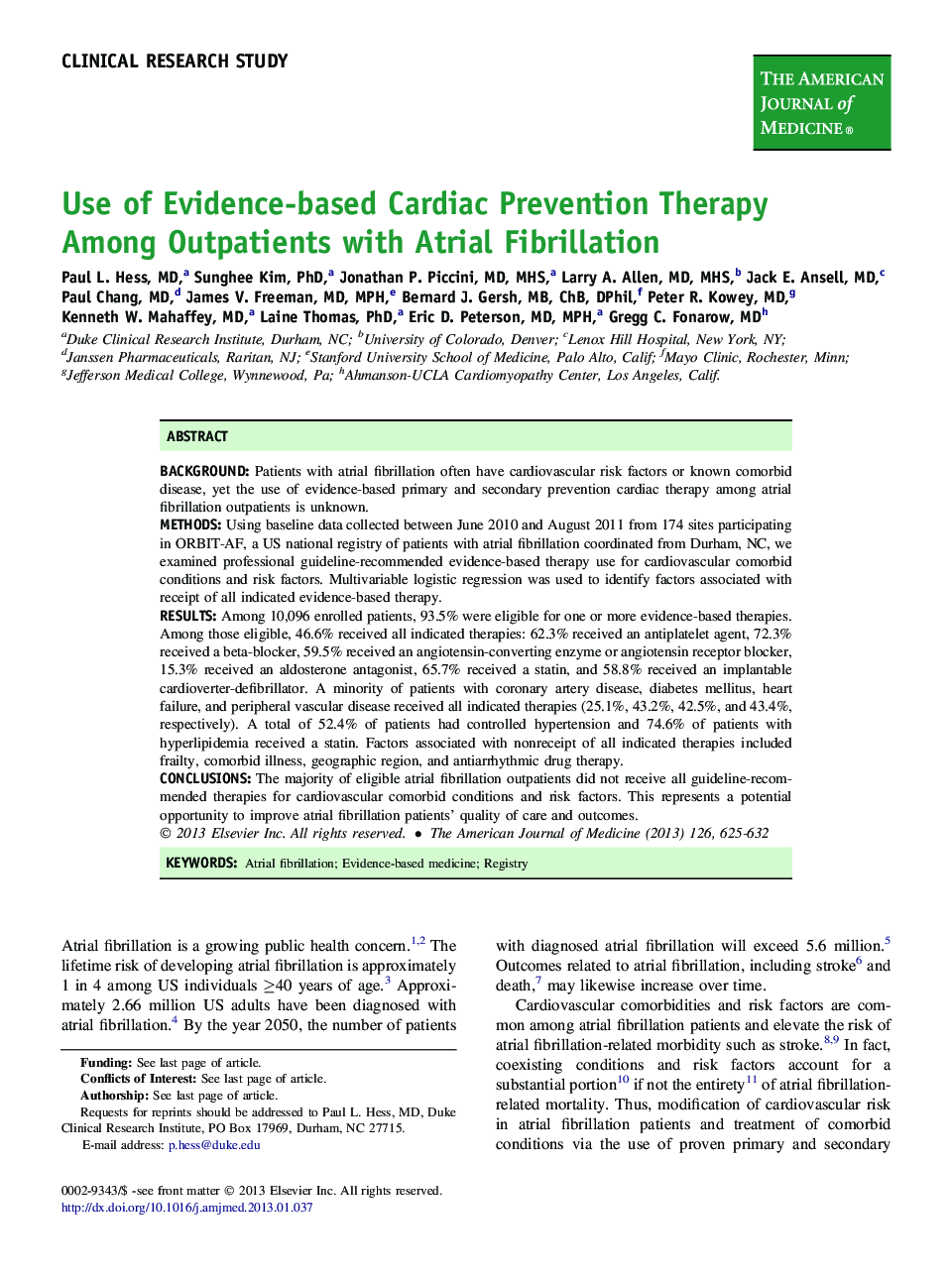| کد مقاله | کد نشریه | سال انتشار | مقاله انگلیسی | نسخه تمام متن |
|---|---|---|---|---|
| 5877825 | 1566150 | 2013 | 9 صفحه PDF | دانلود رایگان |
BackgroundPatients with atrial fibrillation often have cardiovascular risk factors or known comorbid disease, yet the use of evidence-based primary and secondary prevention cardiac therapy among atrial fibrillation outpatients is unknown.MethodsUsing baseline data collected between June 2010 and August 2011 from 174 sites participating in ORBIT-AF, a US national registry of patients with atrial fibrillation coordinated from Durham, NC, we examined professional guideline-recommended evidence-based therapy use for cardiovascular comorbid conditions and risk factors. Multivariable logistic regression was used to identify factors associated with receipt of all indicated evidence-based therapy.ResultsAmong 10,096 enrolled patients, 93.5% were eligible for one or more evidence-based therapies. Among those eligible, 46.6% received all indicated therapies: 62.3% received an antiplatelet agent, 72.3% received a beta-blocker, 59.5% received an angiotensin-converting enzyme or angiotensin receptor blocker, 15.3% received an aldosterone antagonist, 65.7% received a statin, and 58.8% received an implantable cardioverter-defibrillator. A minority of patients with coronary artery disease, diabetes mellitus, heart failure, and peripheral vascular disease received all indicated therapies (25.1%, 43.2%, 42.5%, and 43.4%, respectively). A total of 52.4% of patients had controlled hypertension and 74.6% of patients with hyperlipidemia received a statin. Factors associated with nonreceipt of all indicated therapies included frailty, comorbid illness, geographic region, and antiarrhythmic drug therapy.ConclusionsThe majority of eligible atrial fibrillation outpatients did not receive all guideline-recommended therapies for cardiovascular comorbid conditions and risk factors. This represents a potential opportunity to improve atrial fibrillation patients' quality of care and outcomes.
Journal: The American Journal of Medicine - Volume 126, Issue 7, July 2013, Pages 625-632.e1
